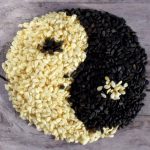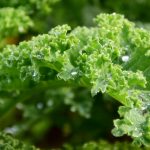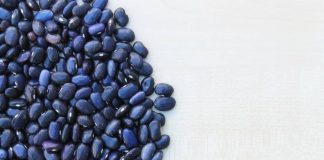Mustard enhances the flavor of many dishes. It is so versatile that you can use it both as a sauce for your hotdog and as a dressing for your salad. It is creamy and has a strong taste that can stimulate your taste buds.
We’re just talking about the sauce there. The seed itself, the one the sauce is made of, has many uses. It is good for the skin and hair. It is beneficial for us humans because it is loaded with a great deal of nutrients such as iron, copper, and selenium.
But what if your dog suddenly begged for your food that contains mustard? Will you let him have a bite or would you say no? And what if dog accidentally ate the mustard seeds or the condiment from your leftovers? Let’s see whether mustard in general, both the condiment and the seeds, are fine for dogs.
Are Mustard Seeds Toxic to Dogs?
Mustard has more than 40 different varieties of seeds. Still, the most commonly used types are the yellow, green, and black. The yellow seeds are ideal for making condiments because of their mild taste. The mustard made from yellow seeds is the type you would usually see in fast-food and in supermarkets.
Green mustard is another popular type of mustard. It is believed that the green mustard seeds have toxic compounds that can harm our pets. In reality, these compounds can cause acute gastroenteritis in dogs.
Brown mustard seeds are another type and they are commonly used in making Dijon mustard. When mixed with liquid, the brown mustard seeds create allyl isothiocyanate.
This naturally occurring substance gives the mustard a hot pungent sensation. It also answers our question why Dijon mustard is hot. This organosulfur compound is sometimes used in dog repellents because of its irritating odor.
Black seeds, on the other hand, are very hot. Actually, they can be so hot that they may attack your dog’s senses. They are the most pungent of all the mustard seeds varieties and are also used in making spices. Just like how you would be irritated after inhaling black pepper, black mustard can also cause airway irritation. This is because of the isothiocyanate in it.
Mustard seeds are often used to induce vomiting in humans and in animals. The solution can be done by mixing a tablespoon of mustard seeds and warm water. It is actually the pleasant taste that will make you want to throw up and is often administered as a home remedy.
Besides that, mustard is also a natural laxative and purgative. In humans, excessive amounts of mustard can also cause abortion. This is the reason why it is not recommended for pregnant and lactating women to consume mustard. If you are afraid it would have the same effect on your doggie, better not let him eat it.
However, it is not recommended that you use mustard seeds as a natural remedy to induce vomiting. Mustard seed water, for the purpose of emesis or induced vomiting, should only be given as per a vet’s advice.
It would also help to bring your pup to the vet if he has not stopped vomiting a few times throughout the first day. There are so many reasons why a dog would vomit. Your vet will conduct an assessment to identify if the vomiting was due to the mustard or other causes.
While mustard seeds can be poisonous to canines, the mustard greens are actually safe for them. Just make sure not to give your pet raw mustard greens because doggies are not capable enough to adequately break down the cell walls of plants.
Supposing your dog has a penchant for veggies, you can feed him mustard greens once in a while, steamed and chopped like all leafy vegetables you give him. Mustard greens have many benefits for dogs. Besides the fact that they provide skin and eye health protection, mustard greens can also help in detoxifying the blood and the liver.
Symptoms of Mustard Toxicity
For pups, the danger from consuming mustard depends on how much of it they ingested. Supposing he ate around 20 seeds or less, it is likely that he may have an upset stomach. But if he consumed a lot, that may require a trip to the vet.
If he is acting normal but has already vomited once or twice, you could administer Famotidine like Pepcid AC. This vet-approved medication is used for treating gastric reflux in dogs. While it is vet-approved and safe, it is still necessary that you let your vet know about it.
The Pepcid AC dosage is 0.5 mg for every pound of your dog’s body weight. Don’t give him an antacid like bismuth subsalicylate, sold under the name Pepto-Bismol as the new formulation of this drug contains salicylates that could worsen your dog’s stomach irritation.
Other than persistent vomiting, here are other symptoms to keep an eye on:
Diarrhea – this symptom often occurs along with vomiting. Don’t give your dog over-the-counter medication to treat diarrhea, especially if your vet didn’t sign off on it.
Lethargy – expect your dog to lack energy and enthusiasm, especially if he has vomited a lot. A metabolic disease is one of the top reasons why dogs can be weak or lethargic all of a sudden. This is a sign that you need to take him to the vet.
Lack of appetite – if your dog refuses to eat even the yummiest treats he normally loves, you might as well bring him to a vet. Other than that, you could initiate the feeding, but start with very small amounts and gradually increase them until his normal appetite is back.
Intestinal tract inflammation – when you or your dog eat too much mustard, you could end up with an irritated intestine. It can harm parts of your digestive system, especially the esophagus and stomach.
Mustard Sauce: How Is It Made?
To figure out whether mustard is safe, we have to know how it’s made. That bright yellow condiment comes from mustard seeds enhanced with the addition of several ingredients.
The American mustard, which is known for its bright yellow color, is a concoction of finely ground mustard seeds and turmeric. There is plenty of vinegar and water in it, as well as other spices to achieve a thick sauce.
Standard mustard, without too many seasonings, is actually healthy for us humans. Compared to mayo or ketchup, basic mustard contains less calories and fats. But just because it can be beneficial for us humans does not automatically mean it is fine to feed it to your dog as well.
Apart from mustard seeds and water, there are other ingredients in the mustard sauce, listed below:
Vinegar – any type of vinegar, even the apple cider one, can cause stomach upset in dogs. Vinegar can make your pet itchy and gassy.
Lemon juice – it may disrupt your dog’s acid base balance because lemon juice is quite acidic. A little bit of lemon juice won’t hurt, but too much of it can be bad for dog.
Salt – some recipes even call for two types of salt. There are mustard recipes that use a combination of table salt and a bit of kosher salt. As we all know, salt can be as bad for dogs as it is for humans.
Paprika – yellow mustard normally contains paprika. Since the recipe only calls for a pinch of this seasoning, you don’t have to worry that it may harm your dog. However, an excessive amount of it causes eye and skin irritation in canines.
Ground turmeric – this one gives your usual mustard its yellow color. You don’t have to worry about giving your pet turmeric because it is definitely safe for him. In fact, it comes with tons of health benefits including anti-inflammatory and healing effects.
Brown sugar – instead of honey, some brands of mustard uses brown sugar to add some sweetness to their product. Some mustards can be oozing with sweetness so they are no longer wholesome for you or for your dog.
Here are the optional ingredients in a basic mustard sauce:
Honey – honey mustard is as popular as the basic yellow mustard. Honey is actually a great addition to a dog’s diet. It can be given to him when your dog has allergies so there’s nothing to worry about feeding him foods containing honey.
Fresh herbs – there are various types of herbs used for making mustard. Examples of herbs most used in mustard are thyme, parsley, dill, and tarragon. Most herbs are safe for dogs as long as they are given in moderation.
Fresh garlic – there are a few brands of mustard use garlic in their ingredients. These types of mustard are the ones you would rather put on sandwiches than on a hotdog. Garlic, as most of us know, is poisonous to dogs.
Beer – some manufacturers use beer instead of water to give the mustard a more complex flavor. Some also use other spirit beverages apart from beer to add more depth to a basic mustard. Beer is toxic to dogs because their kidneys are not capable of filtering alcohol.
White Wine – the Dijon mustard, which is a classic in France, is known for its sharp flavor because it contains white wine. As we all know, liquor in general, including wine, is considered mildly toxic for dogs.
Unripe grapes – back in the day, Dijon mustard was created using verjuice. This juice is basically unripe grapes but it is used as an alternative to vinegar because of its acidity. Nowadays, there are still some manufacturers who use unripe grape juice instead of white wine. It is best to read the labels when buying Dijon mustard, since it may contain verjuice that can harm your dog. All forms of grapes can be deadly to dogs.
Caraway seeds – people who want to get creative with their mustards often add other types of spices. Some mustards may contain caraway seeds that are toxic to dogs and may cause mild vomiting and diarrhea.
What to Do If Dog Ate Mustard
Supposing your dog accidentally ate mustard seeds or mustard sauce from your leftovers, don’t feed him anything for several hours. Avoiding feeding for 12 hours is advised for dogs after vomiting. If he consumes anything after throwing up, he will only puke more and that can aggravate your pet’s stomach lining.
After 12 hours, you may offer your dog boiled chicken and rice. If you don’t have chicken at home, you may use other types of lean meat, just make sure they have been thoroughly boiled.
It is normal for your dog to not show interest in food, even if you serve him his favorite treats. Feed him very small amounts or just a spoonful at a time. Continue giving him a bland diet until his appetite comes back.
In the event that your dog shows other symptoms than vomiting, it is best to call your vet immediately. He may administer a Pepcid AC to treat your doggie’s stomach.
Conclusion
Mustard is not safe for dogs, and mustard seeds can be toxic to them. Besides that, the mustard sauce may contain several ingredients that can be harmful to dogs, including beer, lemon juice, and wine.
In general, dogs are not meant to eat condiments like mustard. Condiments are among the people foods dogs should not eat. Mustard is not as sinful as ketchup and mayonnaise, but it is still best to be kept away from your doggie.
Condiments are not really part of a canine’s diet. If you want to make sure dog will not eat any mustard, keep the condiments and the mustard seeds in a place out of his reach. Don’t let him eat the leftovers especially if they contain mustard.
An occasional lick of mustard will not hurt him, but regular consumption may cause serious problems. Many store-bought types of mustard are either too acidic or too sweet. Some brands of mustard are offensively vinegary and should be avoided for dogs as much as possible.























